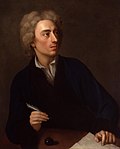Related Research Articles
An irrelevant conclusion, also known as ignoratio elenchi or missing the point, is the informal fallacy of presenting an argument that may or may not be logically valid and sound, but fails to address the issue in question. It falls into the broad class of relevance fallacies.

Alexander Pope was an English poet, translator, and satirist of the Enlightenment era who is considered one of the most prominent English poets of the early 18th century. An exponent of Augustan literature, Pope is best known for his satirical and discursive poetry including The Rape of the Lock, The Dunciad, and An Essay on Criticism, and for his translations of Homer.
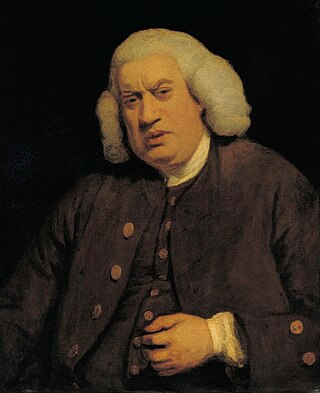
Samuel Johnson, often called Dr Johnson, was an English writer who made lasting contributions as a poet, playwright, essayist, moralist, literary critic, sermonist, biographer, editor, and lexicographer. The Oxford Dictionary of National Biography calls him "arguably the most distinguished man of letters in English history".

Jacopo Sannazaro was an Italian poet, humanist, member and head of the Accademia Pontaniana from Naples.
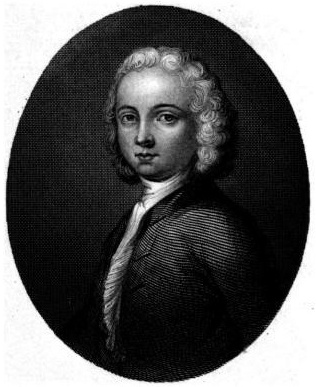
William Collins was an English poet. Second in influence only to Thomas Gray, he was an important poet of the middle decades of the 18th century. His lyrical odes mark a progression from the Augustan poetry of Alexander Pope's generation and towards the imaginative ideal of the Romantic era.
An eclogue is a poem in a classical style on a pastoral subject. Poems in the genre are sometimes also called bucolics. The term is also used for a musical genre thought of as evoking a pastoral scene.
Richard Crashaw was an English poet, teacher, High Church Anglican cleric and Roman Catholic convert, who was one of the major metaphysical poets in 17th-century English literature.
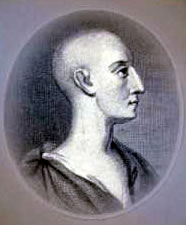
Ambrose Philips was an English poet and politician. He feuded with other poets of his time, resulting in Henry Carey bestowing the nickname "Namby-Pamby" upon him, which came to mean affected, weak, and maudlin speech or verse.
Francis Fawkes (1720–1777) was an English poet and translator. He translated works by Anacreon, Sappho and other classical authors, modernised parts of the poems of Gavin Douglas, and was the author of the well-known song, The Brown Jug, and of two poems, Bramham Park and Partridge Shooting. His translation of the Argonautica in rhymed couplets appeared in 1780.

Lives of the Most Eminent English Poets (1779–81), alternatively known by the shorter title Lives of the Poets, is a work by Samuel Johnson comprising short biographies and critical appraisals of 52 poets, most of whom lived during the eighteenth century. These were arranged, approximately, by date of death.

The Eclogues, also called the Bucolics, is the first of the three major works of the Latin poet Virgil.
Messiah is a title given to a saviour or liberator of a group of people in Abrahamic religions.
Aonia may have been a district of ancient Boeotia, a region of Greece containing the mountains Helicon and Cithaeron, and thus sacred to the Muses, whom Ovid calls the Aonides. Or Aonia may have been an early name for Boeotia as a whole. Pausanias describes the defeat of the Aones, a Boeotian tribe, by Cadmus. The Greek poet Callimachus may have been the first to call Boeotia "Aonia". In Roman literature and thereafter, "Aonia" was used more or less as a poetic term for it, and especially for Mt. Helicon, home of the Muses and the birthplace of the Greek poet Hesiod. Hence the adjective "Aonian" usually meant "Heliconian" and referred to the Muses. Virgil tells how one of the Muses led a poet up the mountains of Aonia; he also speaks of “Aonian Aganippe,” one of the sacred springs on Helicon.
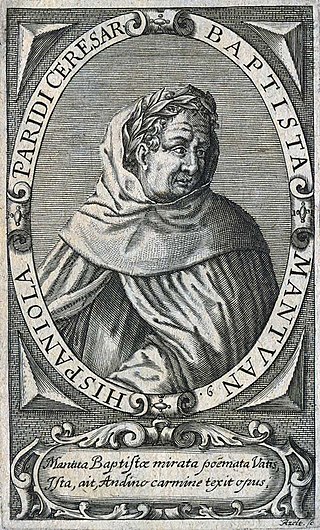
Baptista Spagnuoli Mantuanus, O.Carm was an Italian Carmelite reformer, humanist, and poet.

Nationality words link to articles with information on the nation's poetry or literature.
Messiah (1712) is a poem by Alexander Pope which Samuel Johnson translated into Latin in December 1728. This was the first poem of Johnson's to be published, and consists of 119 lines written in Latin verse. The whole translation was completed in two days and was submitted to Pope for appraisal.

London is a poem by Samuel Johnson, produced shortly after he moved to London. Written in 1738, it was his first major published work. The poem in 263 lines imitates Juvenal's Third Satire, expressed by the character of Thales as he decides to leave London for Wales. Johnson imitated Juvenal because of his fondness for the Roman poet and he was following a popular 18th-century trend of Augustan poets headed by Alexander Pope that favoured imitations of classical poets, especially for young poets in their first ventures into published verse.

The Vanity of Human Wishes: The Tenth Satire of Juvenal Imitated is a poem by the English author Samuel Johnson. It was written in late 1748 and published in 1749. It was begun and completed while Johnson was busy writing A Dictionary of the English Language and it was the first published work to include Johnson's name on the title page.

Samuel Johnson was an English author born in Lichfield, Staffordshire. He was a sickly infant who early on began to exhibit the tics that would influence how people viewed him in his later years. From childhood he displayed great intelligence and an eagerness for learning, but his early years were dominated by his family's financial strain and his efforts to establish himself as a school teacher.

Eclogue 4, also known as the Fourth Eclogue, is the name of a Latin poem by the Roman poet Virgil. Part of his first major work, the Eclogues, the piece was written around 40 BC, during a time of brief stability following the Treaty of Brundisium; it was later published in and around the years 39–38 BC. The work describes the birth of a boy, a supposed savior, who once of age will become divine and eventually rule over the world. During late antiquity and the Middle Ages, a desire emerged to view Virgil as a virtuous pagan, and as such the early Christian theologian Lactantius, and St. Augustine—to varying degrees—reinterpreted the poem to be about the birth of Jesus Christ.
